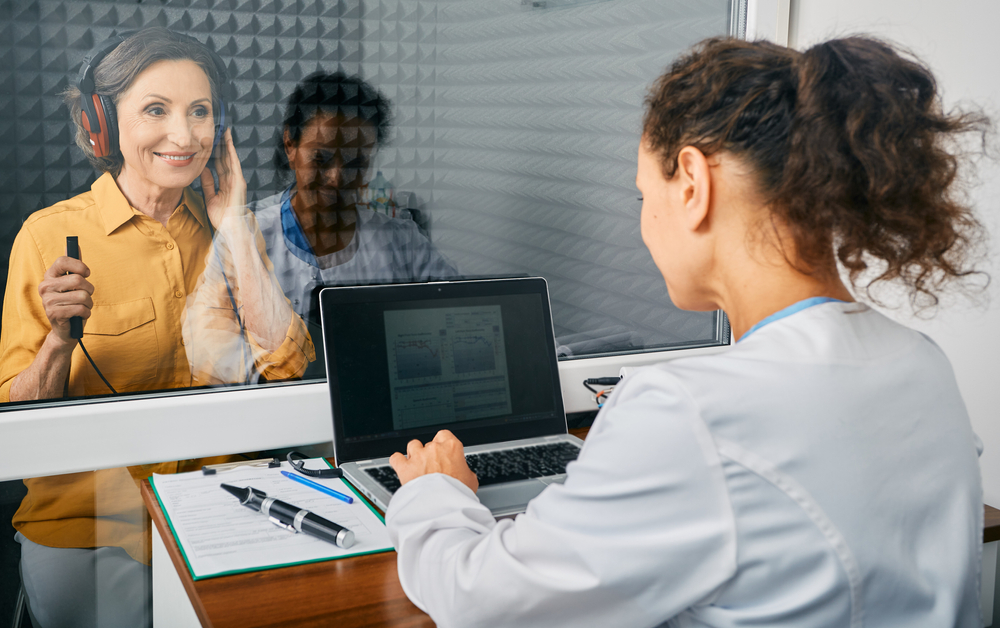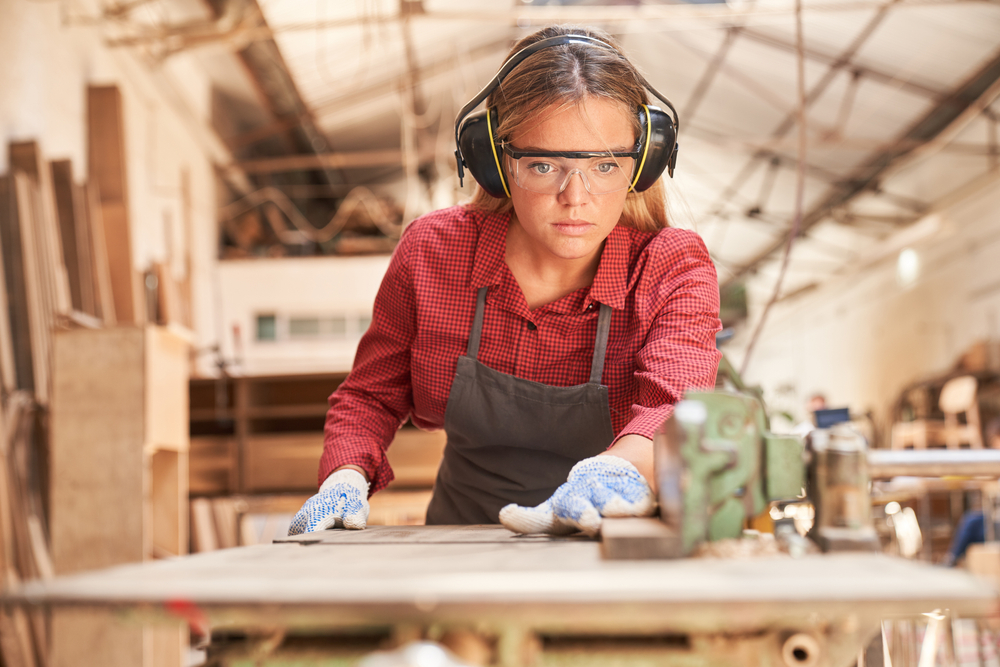Noise is a constant presence in our daily lives. From lawnmowers and traffic to personal audio devices, the world is louder than ever. This increase in noise can have a detrimental effect on your hearing if you’re not careful. October is National Protect Your Hearing Month, making it the perfect time to focus on how to preserve this vital sense.
8 tips to protect your hearing
Fortunately, there are simple steps you can take to protect your ears from the everyday noise around you. Here are eight key tips to safeguard your hearing.
1. Understand noise levels and their impact
Being aware of how loud is too loud is the first step in preventing hearing damage. Different sounds produce varying decibel (dB) levels, and prolonged exposure can lead to permanent hearing loss. Here’s a quick guide:
- 85–90 dB: Lawn mowers, heavy traffic – Safe for up to 2 hours of exposure.
- 100 dB: Motorcycles, construction machinery – Hearing damage can occur in as little as 15 minutes.
- Over 110 dB: Fireworks, gunshots, explosions – Instant damage can happen after just a few seconds.
Taking a proactive approach to noise awareness can help you avoid environments that are dangerous to your ears.
2. Measure sound levels yourself
Curious about how loud your environment really is? You can easily measure it using your smartphone. Several free sound meter apps are available, allowing you to test noise levels around you. To get accurate results, measure from the distance you usually are from the sound source.
Using this tool regularly can help you better understand your environment and make informed decisions about protecting your hearing.
3. Keep the volume down on your devices
Listening to music or podcasts at high volumes is one of the most common ways people damage their hearing over time. The convenience of headphones and earbuds often comes with hidden risks. For example, many headphones can exceed 100 dB, leading to hearing loss in just 15 minutes.
Today, over a billion young people are at risk of hearing loss from using earbuds at high volumes. To protect your ears, never turn your earbuds above 50% of their maximum volume. If you need to raise the volume higher to hear, that’s a sign your hearing may already be damaged.
4. Avoid using music to drown out background noise
If you live in a noisy neighborhood or frequently work in loud environments, it might be tempting to use headphones to block out the background sound. But cranking up the volume to overpower outside noise is harmful. Instead, consider using noise-canceling headphones, which allow you to enjoy your music or podcasts at a much lower, safer volume. If you don’t have noise-canceling headphones, earplugs can be an effective alternative.
5. Always use earplugs in loud environments
For anyone frequently exposed to loud environments—whether at concerts, sporting events, or while operating heavy machinery—earplugs are a must. They are small, affordable, and easy to carry, making them a simple but effective tool for hearing protection.
Custom-fitted earplugs are available for those who need them regularly, providing better comfort and protection than generic options. In any loud setting, don’t hesitate to use them.
6. Follow safety guidelines at work
If your job involves being around loud equipment or machinery, always adhere to safety protocols regarding hearing protection. Some workplaces may downplay the risks, but those who claim “it’s not that loud” may already have significant hearing loss and don’t realize the current noise levels. Protect yourself by following guidelines and wearing appropriate protective equipment.
7. Distance yourself from loud noise
Sometimes the best way to protect your ears is simply to move away from the noise source. Distance reduces the intensity of sound reaching your ears, helping to minimize damage. For example, standing 20 feet away from a noise source producing 110 dB reduces it to around 100 dB—safe for up to 15 minutes of exposure.
Fireworks offer a good example. A firework exploding at 150 dB may seem far away, but if you’re near the launch site, the noise can still exceed 120 dB, causing instant damage. By sitting 2,000 feet away (about five football fields), you can enjoy the show at a safer level below 100 dB.
8. Address existing hearing loss promptly
If you’ve already experienced hearing loss, it’s critical to act before it worsens. Hearing loss doesn’t go away on its own; it progresses. Nearly 1 in 10 adults between the ages of 55 and 64 have significant hearing loss, and those numbers rise sharply in older age.
Ignoring the early signs of hearing loss only speeds up its progression. On average, people wait 7 years too long to seek help. The sooner you consult with a hearing specialist and explore hearing aids or other treatments, the better your chances of preserving your remaining hearing.
Take action today
National Protect Your Hearing Month is an ideal reminder to prioritize your hearing health. Whether you’ve already experienced some hearing loss or want to prevent future damage, these simple steps can make a big difference.
Schedule a hearing test with a qualified provider in your area today and take control of your hearing health before it’s too late.



